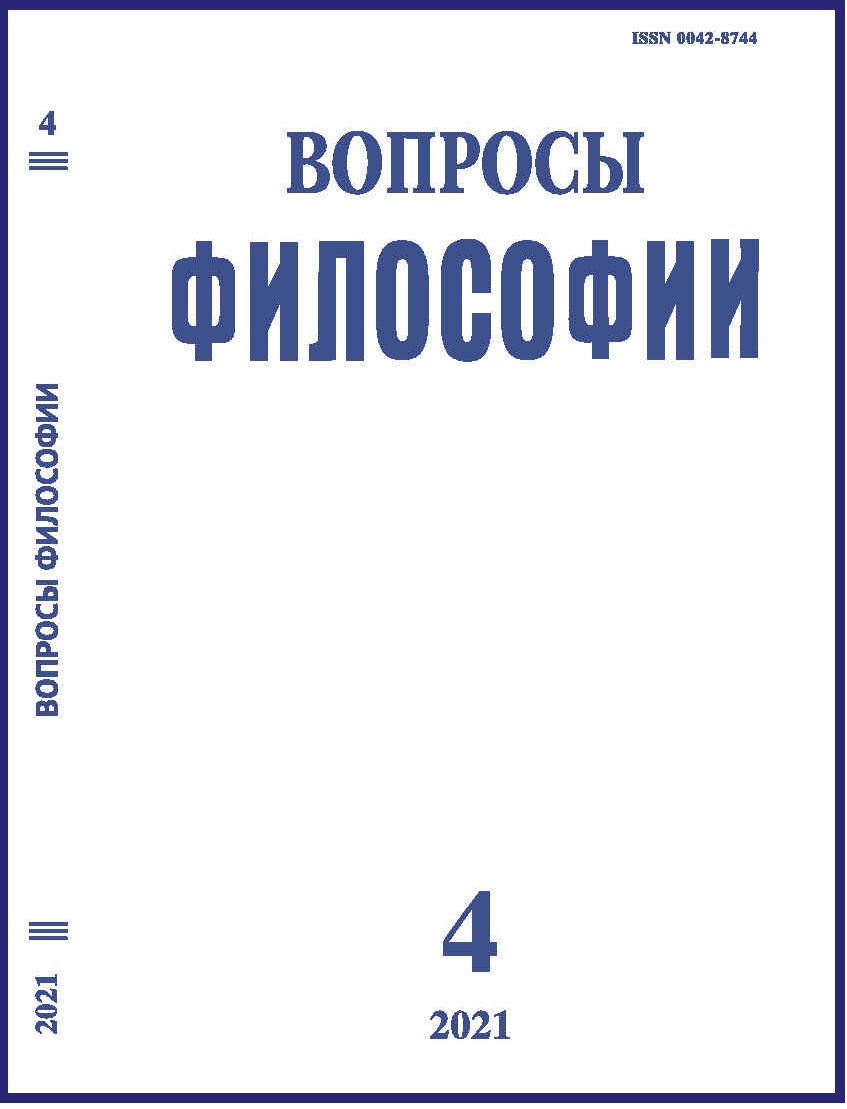Methodological “Mid-for” from the Perspective of V. Lektorsky’s Non-classics, A. Akhiezer’s Mediation and R. Greenberg’s / A. Rubinstein’s Complementarity Principle
DOI:
https://doi.org/10.21146/0042-8744-2021-4-191-202Keywords:
middle, mid-for, sphere between, mediation, non-classical epistemology, individual, personality, I, state, private initiative, Bakhtin, Lektorsky, Akhiezer, Greenberg, Rubinstein, the concept of economic sociodynamics.Abstract
This article is devoted to the analysis of the methodological “middle” from the perspective of research by V.A. Lektorsky, M.M. Bakhtin, A.S. Akhiezer and R.S. Grinberg / A.J. Rubinstein. Why they? Because in their complementarity, they significantly approached the answer to the main question of the researchers of the “middle”: how is possible a social mechanism in Russian culture, which contains the potential to overcome the split between the historically formed Russian culture (veche, authoritarian sobornost, rejecting personality, through itself forming a type of Russian power) and society (ideally civil, personal, through itself shaping social needs)? A scientific discussion on this topic today is possible through the Lectorsky’s theory of non-classical epistemology and its social specification – the M.M. Bakhtin’s principle “I am for the other from the point of view of the other”, “the other for me from my point of view”, the search for the third meaning (mediation) by Akhiezer as an alternative to Manichaean thinking and the Greenberg’s / Rubinstein’s concept of economic sociodynamics (CES). The concept of “mid-for” is used for the first time – the idea of the subjectivity of the “sphere between” culture and society, aimed at developing both poles through developing oneself as the basis for this development.

